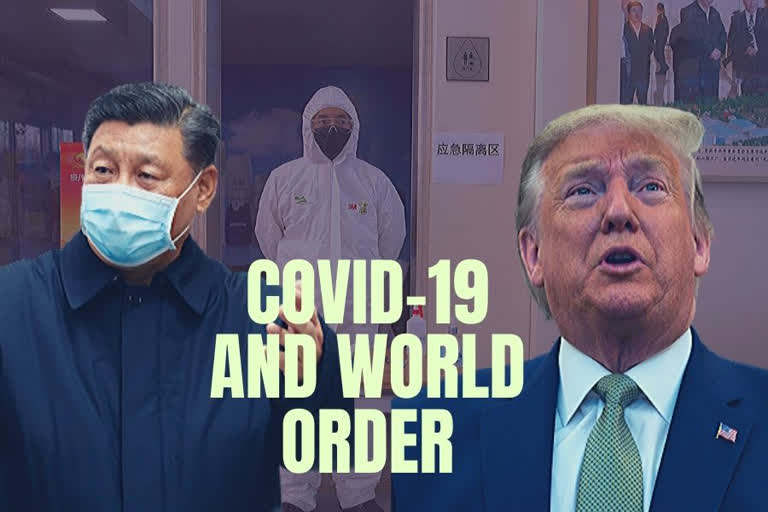Hyderabad: The global politics and the world order is all set for a shakeup owing to a certain new strain of virus, a task which was not achieved even after years of conflict, proxy wars and diplomatic downturns.
As the coronavirus or the COVID-19 spreads across the globe, schools have been shut down, gatherings canceled or banned.
The coronavirus has reached directly into the world’s centers of power, with politicians in Canada, Brazil, Spain and elsewhere either testing positive for the new virus or putting themselves in quarantine as fallout from the pandemic further upended daily life.
Canadian Prime Minister Justin Trudeau will be quarantined for a period of 14 days after his wife, Sophie Gregoire Trudeau, tested positive for the novel coronavirus.
Ali Akbar Velayati, who advises Iran's supreme leader Ayatollah Ali Khamenei on foreign policy, was quarantined after having experienced mild symptoms of coronavirus.
The outbreak in Iran is one of the deadliest outside China, where the disease originated. Several politicians and officials both sitting and former have been infected with some dying from the illness.
Equality Minister Irene Montero's positive test coincided with infections nationwide jumping to 2,968 cases in Spain.
The US-European Union relation have been in sticky grounds since 2016, and the fallout from the virus has strained the relationship further when US announced travel ban on European citizens.
The European Union pushed back against President Donald Trump's sharp restrictions, slamming Trump's "unilateral" decision and declaring the virus a "global crisis, not limited to any continent, and it requires cooperation."
Trump defended his decision to not notify all EU leaders ahead of the announcement. “When they raise taxes on us, they don’t consult us,” Trump said. “I think that’s probably one in the same.”
The vast majority of new cases of the COVID-19 illness are now linked to Europe. Deaths in Italy topped 1,000, with more than 15,000 testing positive.
The virus has produced crippling outbreaks in Asia, Europe and the Middle East, ignited financial panic and in the last week has seen dizzying developments erupt by the hour.
Read: What WHO's 'pandemic declaration' means?
"When the dust settles on the COVID-19 world, we won't be in the same place that we were just a week ago," said Jon Alterman, a senior vice president at the Center for Strategic and International Studies in Washington.
COVID-19 first emerged late last year in the Chinese metropolis of Wuhan -- likely at a market that sold exotic animals for their meat -- and Beijing initially tried to suppress the news including by detaining the doctor who sounded the alarm.
But China in the past week has sought to turn its COVID-19 response into a sort of soft power, with President Xi Jinping visiting Wuhan to trumpet success at containing the spread.
.China as well as Russia have also promoted unfounded conspiracy theories to discredit the United States. Chinese foreign ministry spokesman Zhao Lijian suggested on Twitter that the US military may have brought the new coronavirus to Wuhan.
The Trump administration, which has offered USD 100 million in aid worldwide to help other countries deal with the pandemic, has in turn sought to associate China firmly with COVID-19.
Secretary of State Mike Pompeo spoke of the illness as the "Wuhan virus" and Republican Senator Tom Cotton has vowed that the United States will "hold accountable those who inflicted it on the world."
"While the Japanese and others in Asia are not getting the shock treatment that the Europeans got overnight, there is a very strong sense of questioning American leadership right now," said Green, now a senior vice president at the Centre for Strategic and International Studies.
"We'll see. But that may be how political history turns in this chapter," Green added.
(With inputs from agencies)



